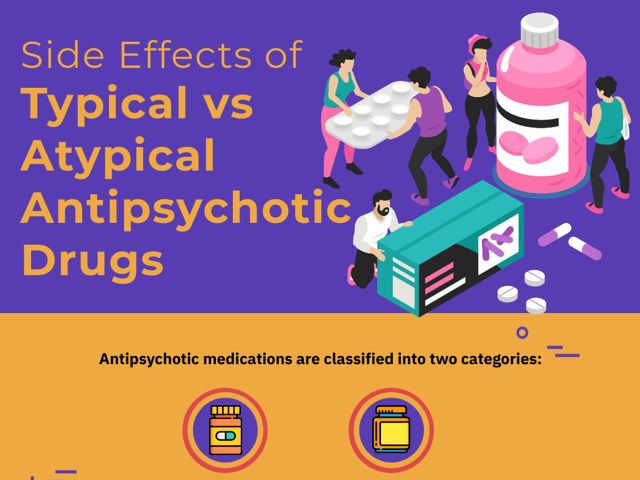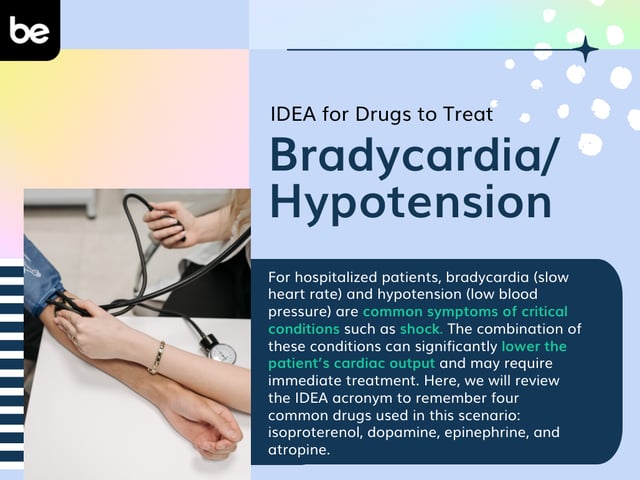
Antipsychotic Drugs: Side Effects of Typical vs Atypical Drugs
Antipsychotic medications are classified into two categories: Typical (or first-generation) and Atypical (or second-generation).
Typical vs. Atypical Drugs
Haldol and Thorazine are the two most common typical antipsychotic drugs. However, typical antipsychotic drugs tend to have more severe side effects. Because of this, many patients struggle with a lack of medication adherence. As a result, atypical antipsychotics, such as Clozapine and Risperdal, were developed. The atypical antipsychotic drugs often prove to be better tolerated and safer for patients.
Differences and Similarities
The mechanism of action for both types of drugs is relatively similar, as they mainly block dopamine receptors. Many atypical antipsychotics also block serotonin receptors. Interestingly, both typical and atypical antipsychotics seem to be effective on the positive symptoms of psychosis, such as delusions or hallucinations, but the atypical antipsychotics are more effective on the negative symptoms of psychosis, such as withdrawal and blunted affect.
Neurological Side Effects
Typical antipsychotics have more neurological side effects. The main side effects from typical antipsychotics that are not present with atypical antipsychotics are called extrapyramidal effects. These are severe side effects that include dystonia, which is when involuntary muscle contractions cause repetitive movements or abnormal posture, akathisia, which is a feeling of restlessness and inability to sit still, tardive dyskinesia, which are uncontrolled stiff, jerky, repetitive movements, and Parkinson’s-like physical symptoms, such as a shuffled gait.
Other Side Effects
For patients taking atypical antipsychotics, the extrapyramidal side effects are less common. However, there are other side effects that occur with both typical and atypical antipsychotics, such as sedation and weight gain. There are many atypical antipsychotic drugs that have similar efficacy, so if a patient does not tolerate a drug well, the patient can be switched to a different atypical drug that may not cause the same side effects.

Keep Reading

National Council Licensure Examination-Registered Nurse Blog
What to Expect in Nursing School Clinicals
The clinical experience is a rite of passage for all nursing students, …

National Council Licensure Examination-Registered Nurse Blog
What is the NCLEX Next Generation (NGN) Exam?
If you’re interested in becoming a registered nurse, you likely know th…

National Council Licensure Examination-Registered Nurse Blog
IDEA for Drugs to Treat Bradycardia/Hypotension
For hospitalized patients, bradycardia (slow heart rate) and hypotensio…